International Women’s Day is two weeks away, and the celebration of The Bahamas’ 50th year of independence is 20 weeks away. Whenever there is talk about independence, I think about women’s rights.
I look for the progress that has been made and all that we still need to do, for the people of The Bahamas and, in particular, women.
It is sobering to think about the meaning of independence, the effects of colonisation, and the continued refusal to free ourselves of the discriminatory and violent laws – largely inflicted upon us by Britain – that continue to limit us in many ways.
Colonisation has long-lasting effects. In The Bahamas, we can see the influence it has had on every facet of life.
We drive on the left side of the road. Ideas about professional attire are inappropriate for our climate. There is still considerable distance between the government and the people, and little opportunity for people to actively engage in governance. Christianity is the dominant religion, whether or not the people who claim it actually practice it. The economy is prioritized over people. Racism and colorism are rampant, and people are still afraid to name them. Laws discriminate against women. Human rights are not valued. Positive changes, to increase access to human rights, are debated and few people are interested in, much less equipped to, advocate in the face of an opposition that has gained power through colonial means.
The criminalisation of marital rape has been discussed for years. In 2018, the then government drafted a bill to amend the Sexual Offences Act to criminalise marital rape without acknowledging it as rape. There were many unacceptable flaws in that bill, and it was rejected.
It was not until 2022 that we saw another amendment bill – the one that is currently being discussed to what seems to be no end. The government refuses to do what it knows must be done, pandering to the loud and wrong voices of church leaders who are, frankly, misogynists.
The church leaders who support the criminalisation of marital rape are not nearly as vocal or consistent as those who oppose the rights of women.
The Minister of Social Services and Urban Development, who has responsibility for the Department of Gender and Family Affairs, has said, without shame, that the government is waiting to hear for a meeting date from a particular church.
What? The bill is being held up because one church wants to have its say and has yet to even propose a meeting date? And this is after the government held a “symposium” that was specifically for church leaders?
Would the government wait to get a meeting date from a non-governmental organisation that promotes women’s rights? Would it stall on legislation regarding finance when the International Monetary Fund or Organisation for Economic Cooperation and Development are making their demands? Who could delay its decision-making on such issues, and by calling for a meeting and offering no date?
The truth is that the position of the church should not matter when it comes to human rights and governance.
The church may be important to its members. It may be a useful network through which to reach people. It may be a guide for the people in it. It is not, however, the government and should not control the government. We, of course, know that the church wields its power regularly and is able to do this because political parties depend on them for votes. It is no secret that religious leaders use their pulpits politically, and in partisan ways.
This is the only reason the government panders to it while undervaluing and, in many cases, ignoring the positions of and evidence provided by people who represent – not control – people, especially those in situations of vulnerability.
The government has allowed the church to cement the narrative, easily disproven by reading the constitution, that The Bahamas is a “Christian nation”, that this was the intent of the framers of the constitution, and that this is the way it must be.
Among our tasks, 50 years into independence, is to gain a clear understanding of the constitution.
It has been, for far too long, a mysterious document whose actual contents are deemed irrelevant or unimportant. It has been treated as though it can only be read and understood by a particular class of people.
One of the only things most people ever hear about the constitution is a lie — that it states that The Bahamas is a “Christian nation”.
Let’s be clear. The Bahamas is not a Christian nation. Not constitutionally, and certainly not in practice. The violence and corruption that people actively participate in every day is evidence of that this is not a Christian nation, unless Christianity is violent and supports corruption.
First, we need to know that the part of the constitution that people reference when they declare that The Bahamas is a “Christian nation” is the preamble.
The prefix “pre” means before, or prior to. The root word “amble” means to walk at a slow pace. A preamble “walks before”. It leads to something else. It is an introductory statement that precedes, or comes before, a law. The preamble, then, is not the constitution.
The preamble, which is not an Article of the constitution, says, “founded on Spiritual Values”. It does not say “Christian nation.” It states “the preservation of [our] Freedom will be guaranteed by a national commitment to Self-discipline, Industry, Loyalty, Unity and an abiding respect for Christian values and the Rule of Law.”
Interestingly, when the preamble is brought up, reference is not often made to the rule of law, despite its proximity to the misquoted term “Christian values.” The rule of law means that everyone is accountable under the law, that the law which ensures human rights, is applied evenly, that laws are adopted and administered in a fair process, and that adequate resources allow for timely access to justice.
This, obviously needs more attention. We know that the rule of law is severely lacking in The Bahamas. Say “human rights” and see what happens. Look at the way laws are written and who is protected by them. Pay attention to the ways laws are passed, and which laws are put to the public for “discussion” which may as well call what it really is – delay. Read and watch the news to find out how the court system (dys) functions.
The preamble states that the nation is “founded on Spiritual Values” and “spiritual” is not specific to any religion. The constitution itself, in fact, entitles every person to freedom of religion and to “propagate his religion or belief in worship, teaching, practice and observance.” It even states no person attending any place of education shall be required to receive religious instruction or to take part in or attend any religious ceremony or observance[…].” Why, then, would our laws be based upon any religion?
Individuals have freedom of religion in The Bahamas. Declaring it to be a Christian nation would be incongruent with that right, so this did not happen in the constitution. The Bahamas is not bound to any religious text or interpretations thereof. It is a secular nation.
Chapter three of the constitution is titled “Protection of fundamental rights and freedoms of the individual. Importantly, Article 15 entitles everyone, regardless of race, place of origin, political opinions, colour, creed, or sex, to a set of freedoms including life, liberty, security of person, protection of the law, and freedom of expression.
How has the right to security of person been made accessible to women? How has the right to protection of the law been made accessible to women? In what ways have these rights been denied?
We can start, of course, with gender-based violence against women which includes marital rape. If the definition of rape in the Sexual Offences Act excludes spouses, what does that mean for women who are raped by their husbands? They are denied, by Section 3 of the Sexual Offences Act, the right to security of person which includes the right to be free from all forms of violence.
They are also denied the right to protection of the law. The Sexual Offences Act does not protect married women from sexual violence inflicted by their spouses. It must be amended. Marital rape must be criminalised.
We need to understand our laws and how they impact people. We need to know what the constitution actually says, and not rely on what people say about the constitution. We need civic education, and not limited to school-age children.
Far too many of us left school with little or no knowledge about the role of the government, the constitution and legislation, and citizens of the country. A public civic education campaign is desperately needed in this country. Without it, independence means very little.
We can have a flag and other symbols, sing a national anthem, and put the faces of Bahamians on the national currency, but none of that makes us free. None of that secures our rights. None of that makes this country a better place.
Independence ought to be about the people – our rights and freedoms, our ability to set and progress toward national goals, and our realisation of this place as a home that we would and could actively choose for ourselves.
Independence has little meaning for most of us, not because we do not understand it, but because we do not feel it or access the freedom and pride it promises. We will not get there without gender equality.
Ending gender-based violence against women and girls must be a national priority, and one that is aggressively actioned, even in the face of opposition.
People and their human rights have to be more important than votes, concentrated power, and the lure of money from corruption and collusion.
The colonisers did not see it that way before 1973. Does the government of today?
Published in The Tribune on February 22, 2023


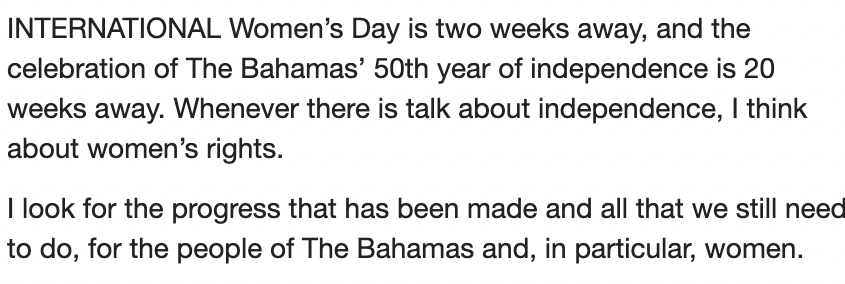
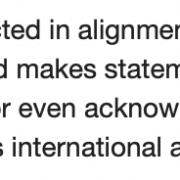
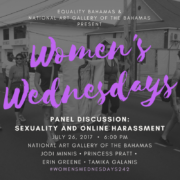
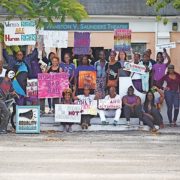
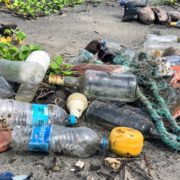
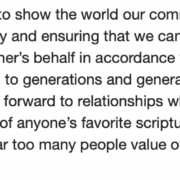



Leave a Reply
Want to join the discussion?Feel free to contribute!